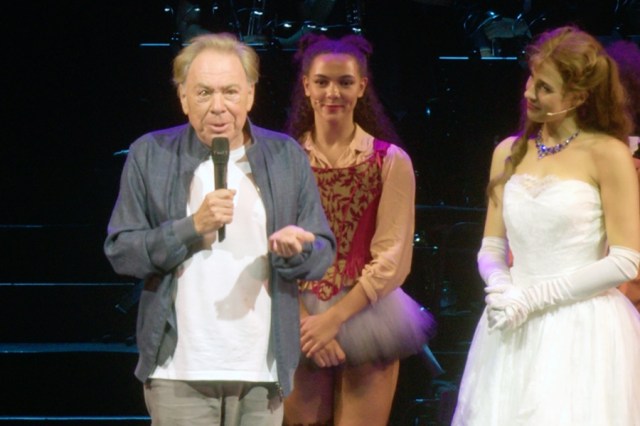The success of Love Never Dies highlights something missing from UK theatre
The concert run took place last week

Theatre Royal Drury Lane hosted something of a resurrection act last week – with a special, three-show staging of Andrew Lloyd Webber, Glenn Slater, Ben Elton and Frederick Forsyth’s Love Never Dies, seen for the first time this week after amends made to the piece during its Australian run.
The semi-staged experience, replete with choreography, costumes, a whole gallon of haze did wonders for a show that, during its initial season in the West End, wasn’t received all that favourably – closing suddenly and never able to make it to Broadway.
But, refreshed and revamped with its sumptuous score played by a 27-piece orchestra (kudos also to musical supervisor Simon Lee and musical director Freddie Tapner), the musical felt assured, dramatic, powerful and poignant – deftly utilising the acoustics of the recently refurbished Drury Lane to fill the space.
The production was helped no end by its sublime cast – producers Fourth Wall having coaxed Broadway royalty Norm Lewis over to the UK to take on the central role of the Phantom, more grizzled and older than Ramin Karimloo who played the role in the West End originally, humanising the enigmatic stalker somewhat. Celinde Schoenmaker, who continues to be one of many excellent stars in Guys and Dolls at the Bridge, delivered a spellbinding turn as Christine – especially in the title number during act two.
The success of the piece highlights something missing from the UK theatre eco-system.
Repeating a call I made during last year’s staging of Chess, another show that hasn’t had the most favourably received book but is well-known for its excellent tunes, what UK theatre needs is an Encores! programme, similar to the US.
In the Big Apple, musicals that may not be seen as commercially viable for long runs or in dire need of an update are given shorter, starrier stints at New York City Center (for example, this season will see Sutton Foster appear in 1959 musical Once Upon A Mattress). It gives creatives and writers a chance to play around with material that might otherwise be consigned to the dustbin. It gives a fresh lick of paint to pieces for limited runs that don’t involve big, financial risks. Shorter stints also attract names that might not otherwise commit to full-length seasons. If the critical and audience reaction is good, the shows can be picked up for longer runs – take the critically beloved recent iteration of Into the Woods as an example.
These limited-run concerts operate in a similar way. Shows like Love Never Dies, Evita and last year’s Chess all gave audiences a chance to experience material with starry casts (including Hollywood talent like Auli’i Cravalho). It also gives rising stars the chance to take on roles that probably won’t come around for big seasons – take, for example, Courtney Stapleton as a stellar Meg Giry in Love Never Dies.
The LMTO, who performed Love Never Dies, might be perfectly placed to help programme something similar in the UK. If the experience could also attract creative teams itching to sink their teeth into classic material, it could also shine new light on vintage shows.
Speaking during the curtain call at Drury Lane, Lloyd Webber hinted that this won’t be the last we see of Love Never Dies. It looks like the show might truly be as death-proof as its title suggests.















